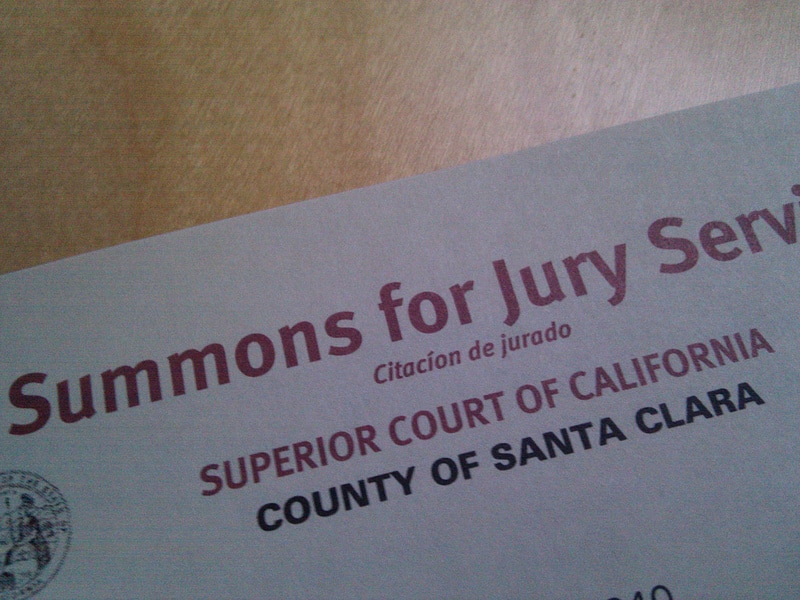| Sometime about mid-morning on Monday, I looked around the room on the fourth floor of the Matheson Courthouse and wondered. Would I be happy if I was on trial and THESE people were deciding my guilt or innocence? Or would I echo the words of Lee Kuan Yew, the first prime minister of Singapore, who once reminisced about his experiences as a trail lawyer and told the BBC, “I had no faith in a system that allowed the superstition, ignorance, biases, and |
| | prejudices of seven jurymen to determine guilt or innocence.” Don’t get me wrong. The 60 or so people who were summoned to jury duty along with myself seemed like nice, decent people. Like me, they all had better things to do that morning. Like me, they were a little nervous about what might happen next and a little concerned about the judge’s explanation that the trial for which we were being considered would last five days. But when the judge asked us each to stand and answer a list of questions about ourselves, it was clear we had a true cross-section of Salt Lake County. That can be scary because, well, not everyone is like me. As far as I’m concerned, I would be the best judge of just about everything. No one said anything about it, but our brush with the justice system happened to coincide with Juror Appreciation Week, which falls on the first week of May. Oh, you didn’t buy me anything to mark the occasion? That’s OK. Just wait until the little yellow card comes in your mailbox; the summons ordering you to report. Each month, the Third District Court of Utah, comprising Salt Lake and Summit counties, issues about 6,000 such summonses. In a recent month, 1,591 of those people never responded, even to a second notice, officials tell me. That’s 27 percent. But subtract the people who had moved without telling anyone, the ones who were deceased and the folks with a variety of other legitimate disqualifying factors, and those who blew off a court summons was closer to 38 percent of the eligible pool. Geoff Fattah, communications director for the state courts, told me the state isn’t in danger of not being able to fill juries, but officials are concerned enough to want to take a firmer approach. “Strong-arming the public is not what we want to do,” he said. However, four people last month were ordered to show cause as to why they keep ignoring summonses. Two of those ignored even that, which means they may be found in contempt of court. Back to last Monday: As we went around the room, our differences became clear. Some had no college degree; some were menial laborers and a few owned businesses. One was an attorney, one a retired pilot and another a paramedic. A few were college students with little life experience, while others were elderly and far removed from the working world. Several had emigrated here from other countries. Few people admitted to reading newspapers or magazines of any kind, although just about everyone said they had a Facebook account. And they were, collectively, the heart of American justice. Groucho Marx famously said he was married by a judge but he should have asked for a jury. Kidding aside, there is wisdom in that reasoning. Dictatorships don’t allow jury trials, at least not in cases of any consequence, because the collective wisdom of the people tends to keep a system honest. The Founders specifically included juries in the Constitution as a guard against tyranny. But here’s my favorite reason: Jury duty injects regular people into the functioning of a branch of government, and that sort of involvement tends to shoo away a bit of cynicism and mistrust. Not all trials are decided by juries, of course, and not all juries get it right. Some attorneys apparently aren’t even bright enough to select me as a juror. Everyone I saw in that room on Monday was different, with the exception that we all took our duty seriously enough to show up. That ought to be enough to give anyone on trial confidence. Democracy is messy that way, but it works. |


 RSS Feed
RSS Feed

